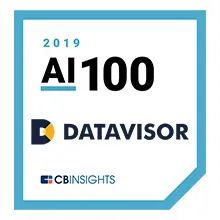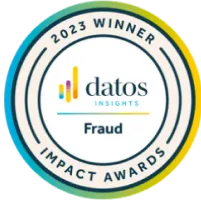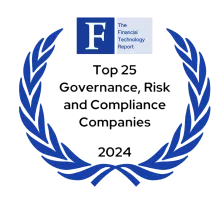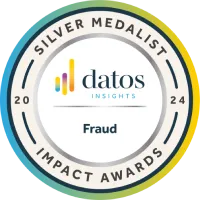Leading Fraud & AML Solutions
AI-Driven for Tomorrow’s Financial Ecosystem
From real-time fraud detection to advanced AML compliance, DataVisor’s adaptable AI protects every customer touchpoint in one enterprise platform.
Request Demo
































































































Built for Enterprise Scale
Real-Time Protection Without Limits
DataVisor’s platform is engineered to keep pace with the largest and most complex financial ecosystems. Native, hyper-scalable infrastructure powers real-time AI decisioning with unmatched performance — so you can grow without fear.
See the Technology
30B+
Events processed annually
15,000+
QPS (queries per second) in live production
<100ms
Latency for real-time scoring
Cloud-native
Architecture trusted by leading enterprises

Customers
Trusted by the World’s Leading Organizations
DataVisor safeguards billions in assets for global enterprises across banking, fintech, payments, and beyond. Our customers choose us not only for cutting-edge AI, but for proven outcomes: faster operations, stronger detection, and confidence to grow securely.
Community Collaboration
You’re Not Fighting Alone
You have DataVisor as your strategic partner, bringing you anonymized signals across industries, and a DEFEND community of fraud and AML leaders together to strengthen defenses as one.


DEFEND Conference
Annual gathering of global fraud and AML leaders for hands-on learning and collaboration
.png)

DEFEND Training
Practical sessions to empower teams with skills, strategies, and the latest tools
.png)

DEFEND Webinars & Forums
Ongoing case study and threat discussions to help tackle emerging threats together.
Awards & Industry Recognition
Year-After-Year,
the Industry’s Choice
Recognized by industry experts and praised by happy clients, DataVisor’s solutions deliver superior results.






























Security & Trust
Enterprise-Grade Security You Can Rely On
DataVisor is built for the most demanding financial institutions, meeting rigorous global standards for security, privacy, and compliance.
.svg)
.png)


Resources
Helping you stay ahead

Ebook
Report
Product Sheet
Solution Sheet
Case Study
Webinar
The Dummy Handbook on Machine Learning for Fraud Detection

Ebook
Report
Product Sheet
Solution Sheet
Case Study
Webinar
AI Co-Pilot Unveiling the Power of Generative AI

Ebook
Report
Product Sheet
Solution Sheet
Case Study
Webinar



.svg)
.svg)



.png)



.svg)
.svg)
.svg)

